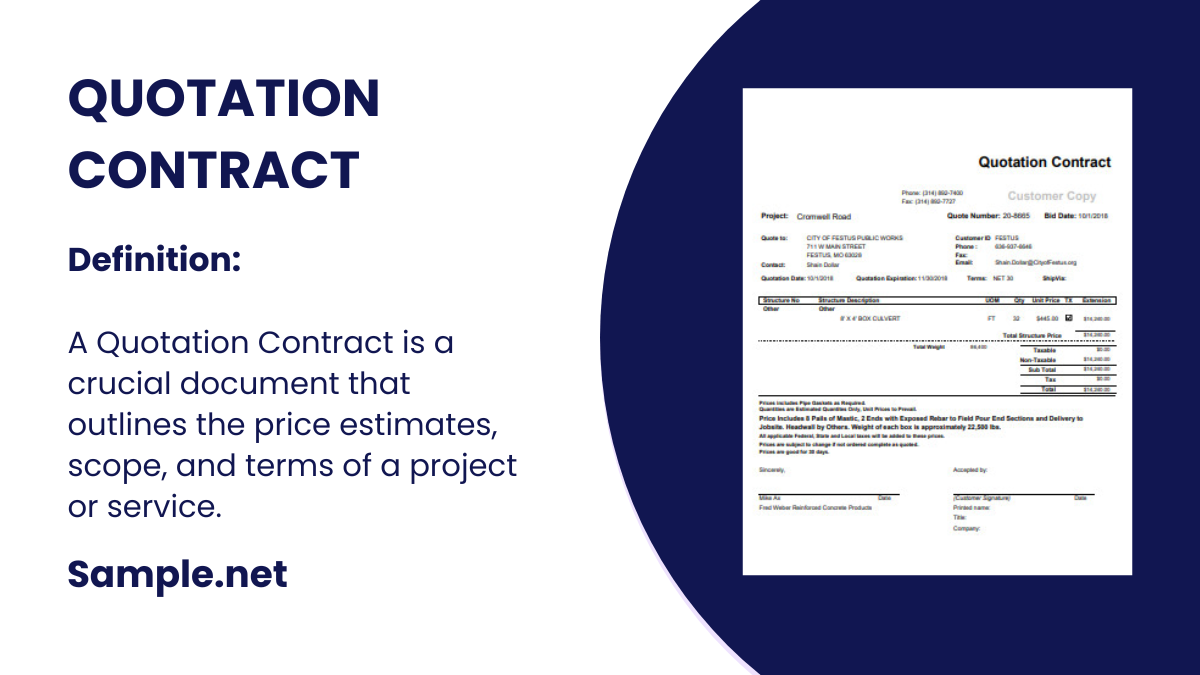A Quotation Contract is a crucial document that outlines the price estimates, scope, and terms of a project or service. It bridges the gap between clients and service providers,…
continue reading
10+ SAMPLE Film Production Contract
-
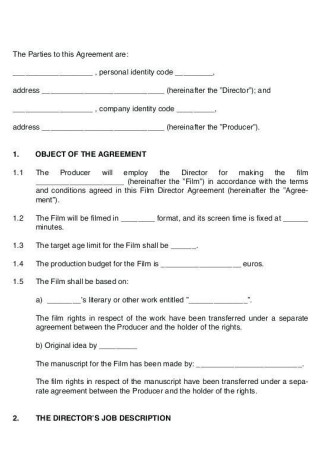
Film Director Contract
download now -
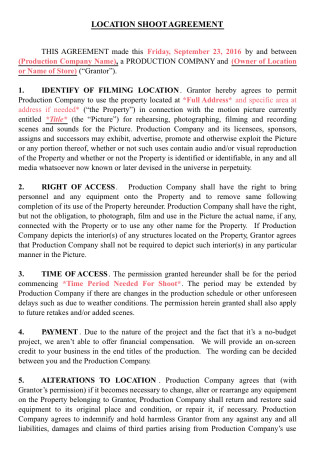
Location Shoot for Film Production Contract
download now -

Actor or Actress Contract for Film Production Contract
download now -

Film Production Agreement
download now -
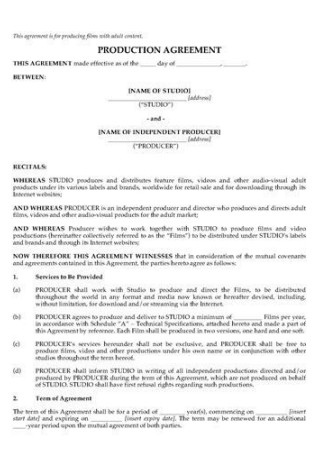
Film Production Agreement Template
download now -
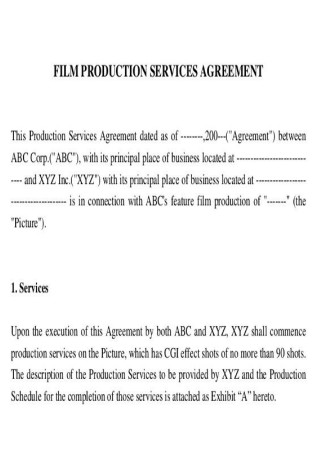
Film Production Services Contract
download now -
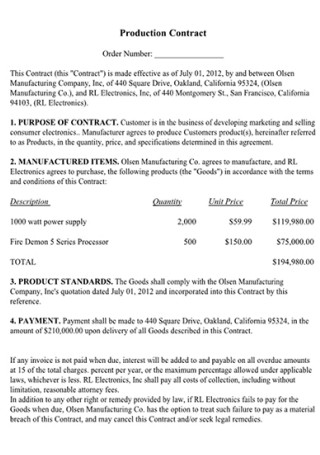
Film Production Contract Example
download now -
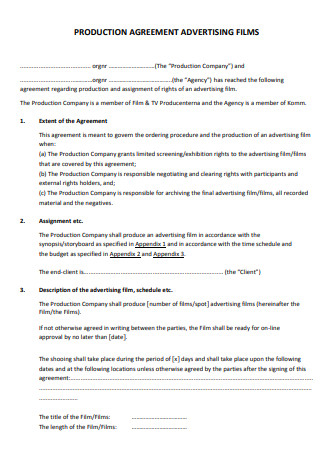
Advertising Films Production Contract
download now -
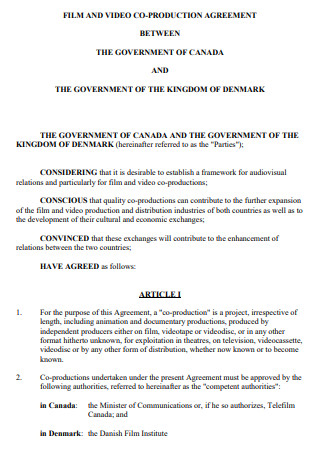
Film and Video Production Agreement Contract
download now -
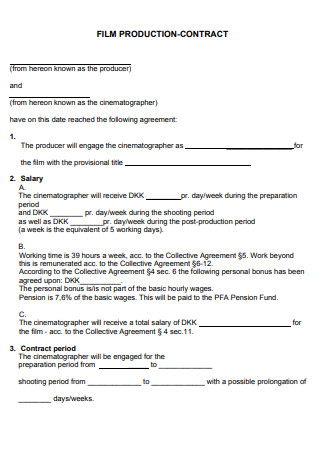
Simple Film Production Contract
download now -
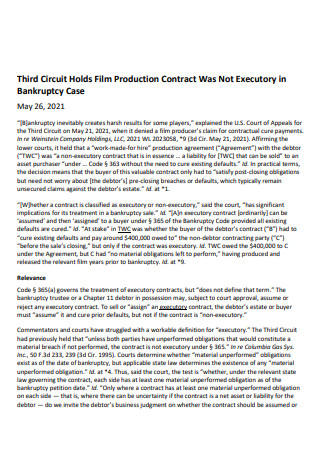
Third Circuit Holds Film Production Contract
download now
What Is a Film Production Contract?
A film production contract or agreement protects the rights of the film. This is necessary to avoid miscommunication and risk at every stage from pre-production to distribution. Contracts need to be set in place with the production team, cast and crew even from before initial photography commences.
During this period, the planning undertaken will ensure that all the jiffs and pieces of the next process, which is the production process, can be started impeccably. Oftentimes, more than one production companies may be financing a film and in which case a co-production agreement is signed between several producers.
Lest the production requires securing the rights to external content namely: audio tracks, or video footages, the same may be the duty of the client. However, just in case the producers are required to obtain the same, then the costs for such licenses will be accepted by the client. In most cases, like the case of ad jingles, the client may have the right to the soundtrack, and it will then authorize the same to the producers for the exact purpose of using the jingle in the production of the film.
Moreover, production contracts can also be between a client and a producer. This is usual if a film is prepared not for general entertainment, but to serve a specific purpose like ad films, music video, other non-commercial films, etc. In such scenario, the client may be obligated to give the general content of the film to be produced, while the producer shall be responsible for content development. The agreement will typically provide a substantial control over the creative process to the producer, especially if the client have little to no knowledge about the creative process.
The agreement will also state that a delay of the timeline due to changes suggested by the client to the content will not make the producer accountable. These timelines may be unfavorably affected by a litany of factors—it may be the unavailability of the crew or cast members, filming locations, non-receipt or delay in receipt of approvals, delay of post-production process, postponement caused due to technical failures, etc. In addition, even adverse weather conditions may affect the filming schedule, since availability of the finest lighting conditions play an important part in outdoor filming. While the producers will therefore build in suitable buffer to compensate for such occurrences, the agreement will also provide that the producers will not be liable for any delays such as the ones mentioned above since, these are not within the sensible control of the producer.
The agreement will also contain typical legal language about the independent work relationship, liability, confidentiality, and dispute resolution methods. During the process of making your contract, you also can determine which state’s jurisdiction it is subject to. More modifications are permitted, as well.
The cost for the production, payables to the producers will be accepted by the client in the manner as provided in the agreement. The payment may be on an upfront payment basis—wherein, the payments are to be paid by the client to the producer before the start of the filming, or on a milestone basis.
It may be noted that the agreement should provide for the circulation of the payables in such manner so as to guarantee that the costs incurred during each step of the production process is adequately covered. This is because the production process needs the active participation of several independent specialists and service providers, and in case of a cancellation of the production, the liability to pay them for the portion of services rendered by them stays. Therefore, in case of a cancellation of the project, certain contracts may specify that the producers will be entitled to deduct the costs incurred by them before making the reimbursement to the client.
The contract will provide them with the license to use the film, or extracts from the film for promotional purposes which means the finished product may be used by the producers as part of their portfolio. This would include their use in show reels, or on website, etc. The agreement will also automatically provide that the moral right over the film will belong to the producer, even though the commercial rights in respect to the film will belong to the client. The agreement may provide that the original physical film in respect of the production will remain the property of the producer. However, clients will be entitled to receive appropriate number of physical copies of the film for their use.
Generally, a film production contract happens between an investor, distributor, or lead-producer who wants to hire a production company to execute on diverse aspects of producing a film, television program, commercial, or other media production.
What Is Film Production?
It must be borne in mind that film production is a creative process and it may often be the case that the aesthetics and sensibilities may vary from one person to another. It is for this reason that the agreement will provide that merely the presence of creative differences between the client and the producer will not entitle the client to terminate the contract or withhold payments to the producer.
Film production entity is a business and involves selling passive interests in the business to finance the film, this raises many issues regarding federal and state disclosure requirements set forth by applicable securities laws. The producers and promoters of the business are responsible for providing full disclosure of all the material facts regarding the investment and its risks to their passive investors. Material information is any information that a reasonable person would want to know when deciding whether or not to invest in a film.
What Is the Importance of Film Production Contract?
The main purpose of the production agreement is to agree on the budget of the film, the contribution ratio between the co-producers towards the budget, and the profit share between them. The agreement will also provide for the exercise of creative control over the production. While others may also be bringing to the table their experience and expertise in the industry, there are specific co-producers who may only come-in as investors. The agreement will therefore have to provide the specific roles and obligations of each producer in respect to the production. Mainly, the creative control will remain with the principal producer.
Furthermore, the casting of artists is also at the sole discretion of the producer. However, there may be times, say in an ad film wherein the casting is to be determined around the brand ambassador (if any). At this point, the client may be required to provide inputs in respect of casting and ensure the availability of specific persons for the filming stage. In the event the client is not involved with the casting or the filming, then the producers will typically disclaim all liabilities arising out of the failure of the artists to realize the expectation of the client.
The agreement will provide that only those people who have been authorized by the producers will be allowed entry into the set, while the client may have the right to authorize one or more persons from their team, such authorization shall be enforced at the discretion of the producer. In addition, the filming sets are secured areas to guarantee the safety of the artists, many of whom may be well-known celebrities, safety of the props and gear used for filming, and generally to ensure the confidentiality of the end production/ film. However, the client will retain the right to monitor the shoot and to provide their inputs to the producer.
One of the major terms of the agreement pertains to the schedule during which the production process is to be completed. This not only includes the actual filming, but also the post-production process. Post-production process can include additional filming, sound effects, editing, dubbing, film color grading, etc. Since the timelines for each process has to be tightly controlled, the agreement may provide for milestone-based timeframe. For co-producers and for clients, the timelines are important since the release of the film must coincide with external factors like launch of a brand, or a music album, or particular events when the film is to be shown. The timing of the release of the film will also affect the revenue that they expect to produce from the commercial release of a film–particular holidays or festivals that see higher ticket sales for particular film releases.
How Do You Write a Film Production Contract?
Safeguarding transparency between exclusive rights and duties can be done through an inclusive contract. Although it can be a bit complicated concerning the elements that needs to be applied in a legal document, there is nothing to worry. To make sure that everything is kept in a written document, start everything by writing down. Whether it is for location, video production, or music production contract, always start with a pen and paper. Always deal with the right person by acknowledging both parties and make sure that the other party is interested to sign and verify the legality of this contract. Write a film production contract by doing the following:
FAQs
1. Who commonly negotiates location agreement?
It is the department head who takes charge of location contracts for most productions. Location managers finalize the location during the pre-production.
2. Are actors included in contracts?
Yes, actors are obliged to sign the contracts before the production begins. It is commonly termed as the talent contract. Before a film is shown, some hardworking individuals make sure everything goes with the plan. Safeguarding the crew’s rights, an agreement shall be prepared and signed. Eventually, you can escape any legal issues once you secure a contract.
3. What does a film production company do?
A film production company works on the process of producing video content for social media, television, corporate promotions, commercial or other media-related fields. Video production usually is involved in multiple aspects all related to video making such as location scouting, scripting, and logistics.
4. What are the consequences of breaching a contract?
If an actor breaches an employment contract altogether, they could lose the value of the contract entirely. Additionally, they would be liable for other expenses incurred by their employer as result of the breach. Most contracts will set specific fines that are to be imposed on an actor for certain offenses, an example of this would include being absent or late to a practice, performance, or other required event.
Legal contracts can be used by individuals as well as organizations, such as businesses and corporations. Any legal contract must be entered into in a way that is fair for both parties, and free of any fraud, misrepresentations, or coercion.
Within the law, once a contract is breached, the guilty party must remedy the breach. The primary solutions are damages, specific performance, or contract cancellation and restitution. Compensatory damages: the goal with compensatory damages is to make the non-breaching party whole as if the breach never happened.
It is vital to seek assistance from an entertainment attorney who has experience in negotiating an actor contract. An entertainment attorney will assist you in getting the best deal in your contract, and will ensure that the contract is not one-sided in favor of the producer. As you are an employee, you are entitled to certain rights and protections that should be adhered to.
Anyone who is a part of the production, whether you are the producer, actor or the crew, failing to understand any paper you sign is very dangerous. Make sure you address who gets to own the project or its rights. If you are new at this, you should have an attorney interpreting legalese and ensure the language of the contract addresses each party’s rights and obligations.
Time and effort that is given to pre-production in the film-making procedure is undervalued. At this time, producers govern the preliminary budget of the film, and the production and post-production schedule. Producers hire the key department heads and begin the creative planning process. They further refine the budget and schedule, obtain shooting permits, scout for and finalize shooting locations, hire crew and artists, secure rentals for props, undertake auditions and rehearsals prior to the start of filming.
In conclusion, the contract must contain pertinent details that provide insight into both parties including names, address, and phone numbers as well as details on the work to be completed as part of the agreement.
